The most elegant inn of the first decades of the 18th century and the most popular among the high society was The Seven Electors' Inn located in the building at 9 Váci Street. The one-storey Baroque-style house was originally built by János Lenner of Lennersberg, who was born in Vienna and was first a carpenter and then a bridge master, and between 1717 and 1720 he was the chief judge of Pest. According to the data published in the Pest-Budai regélő of Sándor Lestyán, from 1724 he operated an inn in the building under the name “Gasthoff zu den 7 Kurfürsten”. After his death, his son, Imperial Captain Tóbiás Lennersberg, rebuilt the house in 1772, which was bought in 1777 by Sebestyén Heuszler, a civilian innkeeper from Tóbiás Lennersberg's widow. Back in that year, he set up a ballroom upstairs that was visited by an illustrious audience from the start.
On the ceiling of the ballroom, according to survived descriptions, was a painting depicting the destruction of Troy, and 12 large, mirrored chandeliers provided the light. Public, private and masked balls were also held here. The dining rooms opened from the gallery.
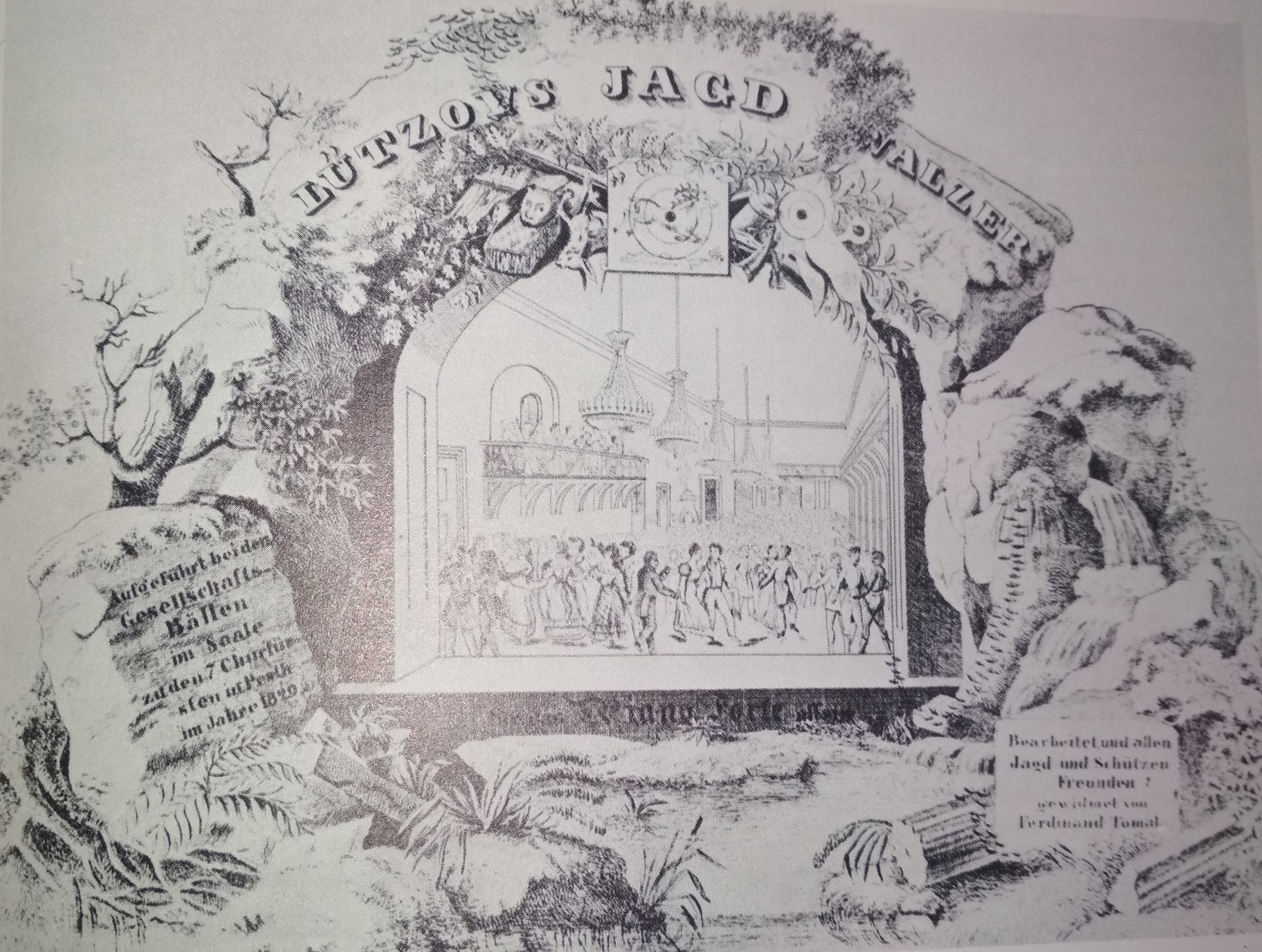
The representation of the inn's Great Hall adorned the cover of a sheet music, which was published by Ferdinánd Tomola (Source: László Tarr, The Novel Chronicle of the Old Váci Street)
Arriving in Pest on 24 November 1788, the German-Roman emperor Joseph II, a German, Czech, and Hungarian king, had lunch and stayed at The Seven Electors' Inn. A year later, on 29 August 1789, Archduke Francis was a guest of the inn for one night. Travellers often pointed out The Seven Electors' Inn in their descriptions, praising their cheap prices and great cuisine. Traveler Franz Jenne, for example, wrote in his travelogue of 1788: “Traveller Franz Jenne, for example, wrote in his travelogue of 1788: “The Seven Electors' Inn gives eight very tasty dishes for 15 pennies. And this is the most upscale restaurant.” The owner also furnished a games room in the building with a pool table, which he operated without a permit. Pool was specifically the prerogative of those with coffee rights. The cafés of Pest sued Heuszler, who built a café in the building in 1791, acquired coffee rights, and thus the operation of the pool table became legal.
Shortly afterwards, in 1800, Kristóf Nákó from Nagyszentmiklós bought the property, and Ádám Götz became the tenant. In The Novel Chronicle of the Old Váci Street by László Tarr describes that Palatine Joseph visited here several times and took part in several masked balls. He stayed here on 26 January 1803, 4 February 1805, and 22 January 1826, according to records during the carnival. János Ferenczy, a lawyer and a geographical expert, made a note about the third visit, in which he described that the Palatine had grown a Hungarian mustache. "Last year, this Hungarian national mark had not yet shone under its nose", he wrote with joy.

The Great Hall of The Seven Electors' Inn (Source: László Siklóssy: A Thousand Years of Hungarian Sport, Volume II)
The tenants changed later, but the function of the inn remained. In 1813 György Tretter operated the place. One of the articles in Hazai ’s Külföldi Tudósítások refers to this: "(…) Mr. György Tretter, being an elected Citizen, being the host of The Seven Electors' Inn, first gave a Ball, later a Music Academy, and gave his full income to the Military Order" . For unknown reasons, Tretter handed over the lease to Wilhelm Keresztély Tekusch, who completely renovated the building, along with the ballroom and all its rooms.
The ballroom was home to a notable event in 1820: the master builder József Campmiller, born in Linz, presented here the first plans he had made for the bridge connecting Pest and Buda, and the sixty-three times reduced model of the bridge; this plan was forgotten in later years.
In 1821, Franz Schams, a Czech-born writer, teacher, viticulturist, and editor, notes about the guests in a book that only people from “ordinary classes” dance at these balls, with others just watching them.
The operator Tekusch organised not only balls but also academies (concerts) in the hall. In addition, the place hosted other events, such as on 23 April 1823, a certain Weiss, mechanic from Breslau, held optical and physical experiments for the public.
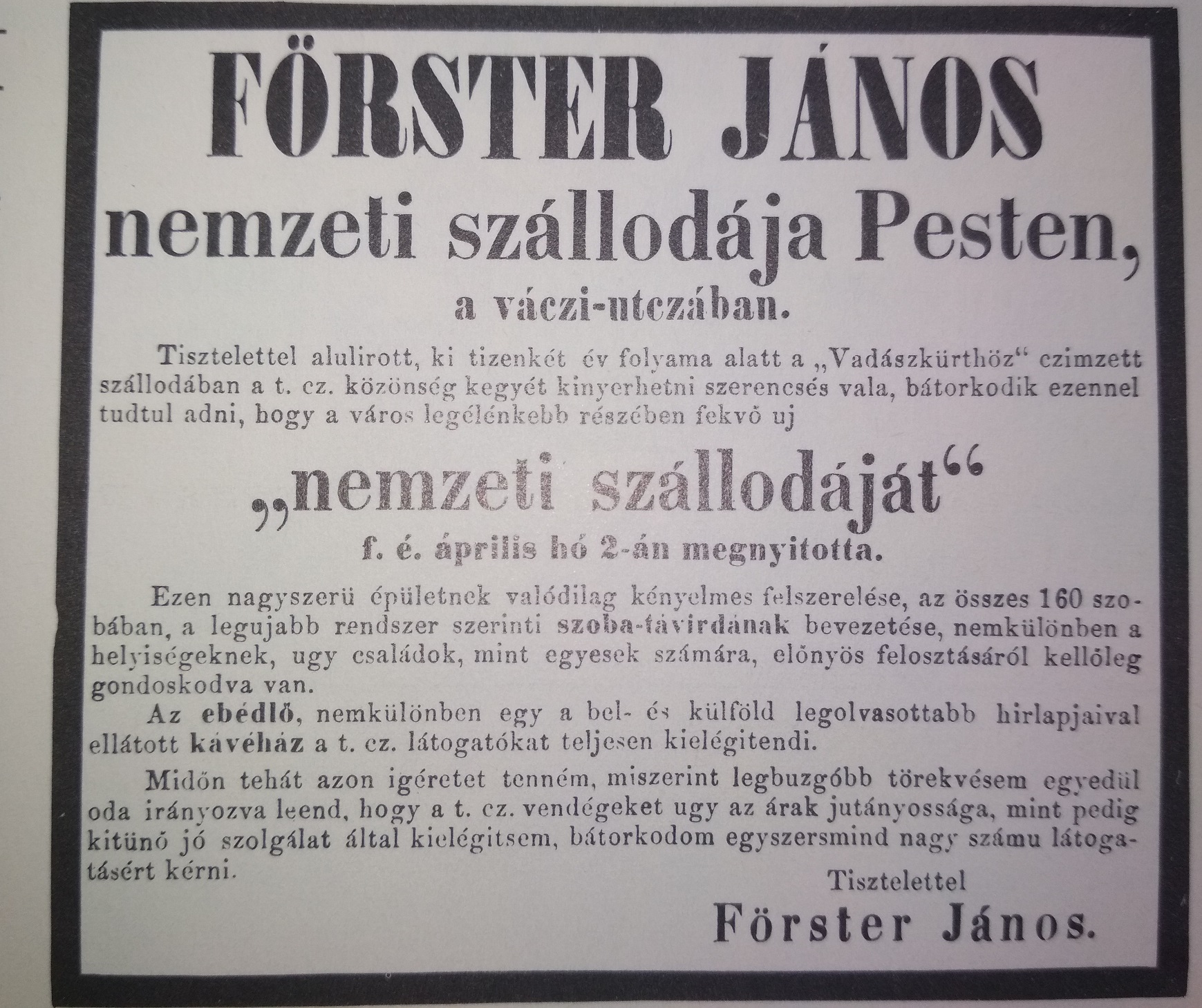
The date of the opening of the Hotel Nemzeti can be accurately determined from the advertisement (Source: László Tarr, The Novel Chronicle of the Old Váci Street)
On 23 April 1823, Ferenc Liszt, then 12 years old, made his debut in front of the music lovers of Pest, giving his concert in the ballroom of The Seven Electors' Inn. An article in Hazai ’s Külföldi Tudósítások wrote of the event: "In all, the beautiful blonde young man showed such skill, lightness, precision, feelings, pleasant strength and masterful craftsmanship that he would fill the whole noble congregation with beauty and stare."
After a year, János György Tretter took over the operation of the inn from Tekusch, and a few years later József Ferenc Hauer operated it. On 1 May 1833, József Hauer created a garden with flowers and exotic plants in the courtyard, which he named Flora's Garden.
Redoute, the predecessor of today's Vigadó, was completed in 1833. One of the outstanding works of Pest's classicist architecture was designed by Mihály Pollack. In a short time, it became a central place in social and cultural life. Masked balls, civic balls and concerts were also held here, so the privilege of The Seven Electors' Inn in the Downtown ceased.
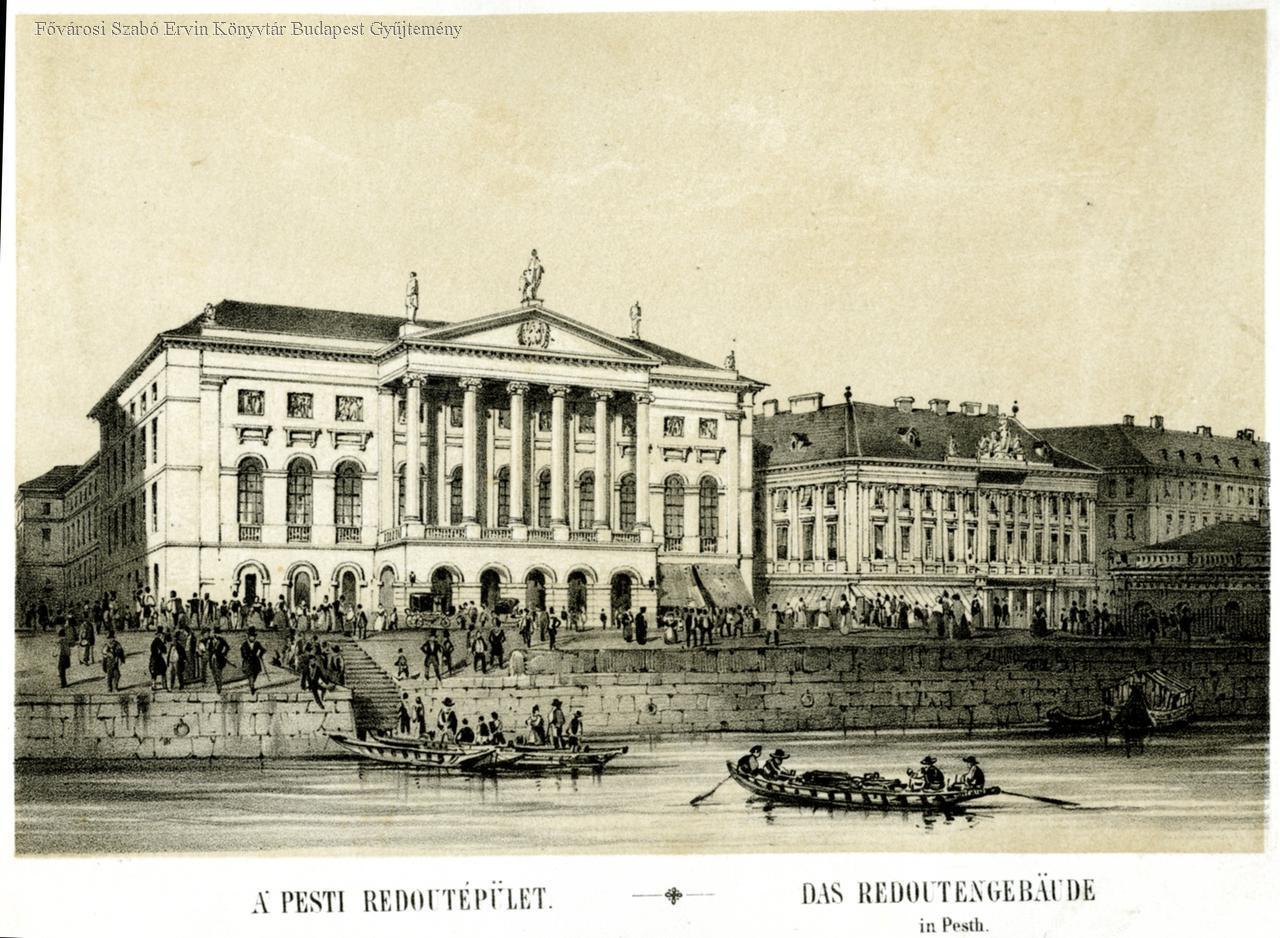
After the completion of Redoute in Pest, the popularity of the ballroom of The Seven Electors' Inn declined very quickly. The Redoute building in 1845. Drawing by Rudolf Alt, F. J. Sandmann's engraving (Source: FSZEK Budapest Collection)
As early as 1834, the popularity of the place declined markedly, and the ballroom, which had previously been considered first-class, was classified as second-class. The owner renovated the interior of the building to reclaim its guests, but a contemporary critic of the Honművész expressed his displeasure: "The use of the three Hungarian colours and the green trees on the walls, gallery and doors is contrary to the new painting taste." Hauer tried to give colourful, popular shows in the ballroom, so he invited Swedish singers and then opened a dance school led by Lajos Szöllősy and Ferenc Kaczért. Despite the audience-attracting repertoire, the popularity of The Seven Electors' Inn continued to decline; At the carnival of 1835, only a few attended his ball.
In the meantime, Kristóf Nákó became the owner of the building next door, one of the facades of which overlooked Aranykéz Street. Hauer attached this house to the inn and converted the property into a hotel, which from 1836 onwards was proclaimed as The Seven Electors' Hotel. “This inn, already due to its greatness and completely new structure, can rightly be called the upscale Hotel”, he said in an ad. László Tarr names the hotel the first hotel in Pest.
In the old, elegant ballroom, the stuntmen took over the lead role. According to the descriptions, Mihály Vörösmarty also visited here with László Bártfay, and they watched the presentation of the Tyrolean srongman, Tschugmall on 24 March 1839. The first performance began at 5 pm each afternoon, the following started at 7 pm. The strongman donated the proceeds to the National Institute for The Blind in Pest.
The Seven Electors' Hotel, despite its varied repertoire, was unable to regain its popularity, and on 30 July 1840, Hauer announced in a statement that he would leave the place and sell the furniture. The Seven Electors' Hotel closed after it.
.jpg)
The building of the Pest Theatre on the site of the inn, in the building of the former Hotel Nemzeti designed by József Hild (Photo: pestbuda.hu)
The owner demolished the building, replacing it in the same year with a three-storey classicist residential house designed by József Hild, which opened as Hotel Nemzeti in 1865 and operated until 1902. There was a café in the Aranykéz Street tract.
The residential house had offices, shops, hat shops, tailoring workshops, and apartments. In 1915, the restaurant and courtyard of the former hotel were merged, and the 379-seat Corso Cinema, founded by Marcell Pick and Lajos Fiedman, opened on its site. The building, which was badly damaged in World War II, was renovated in 1945. The area of the cinema and one of its rooms operated under the name Bartók Hall from 1955. The building was renovated and rebuilt between 1964 and 1967, when the stage, changing rooms, foyer, theatre technics, acoustics, supplies and offices were also designed. The chamber theatre of the Comedy Theatre, the Pest Theatre, moved into the listed house in 1967 and still operates here.
Shooting Ball in the Great Hall of the former Seven Electors' Inn (Source: László Siklóssy: A Thousand Years of Hungarian Sport, Volume II)

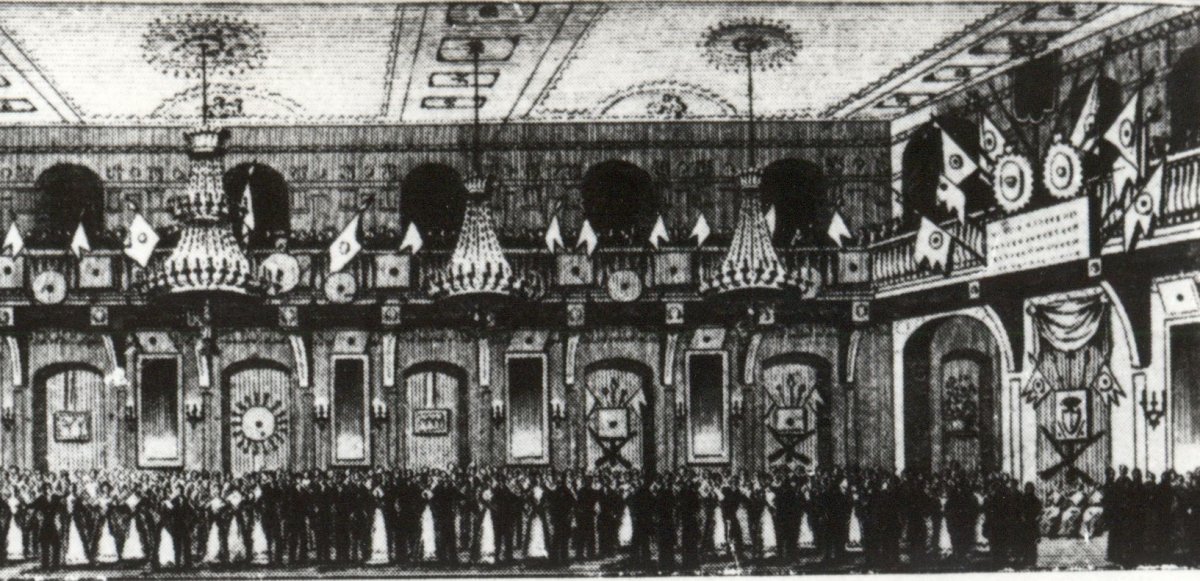
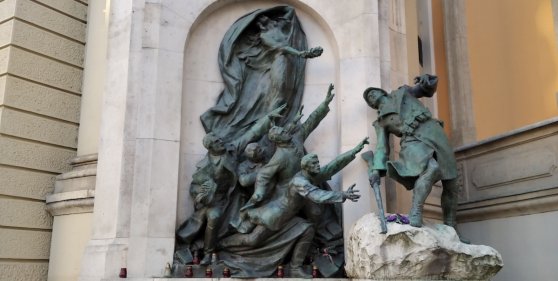
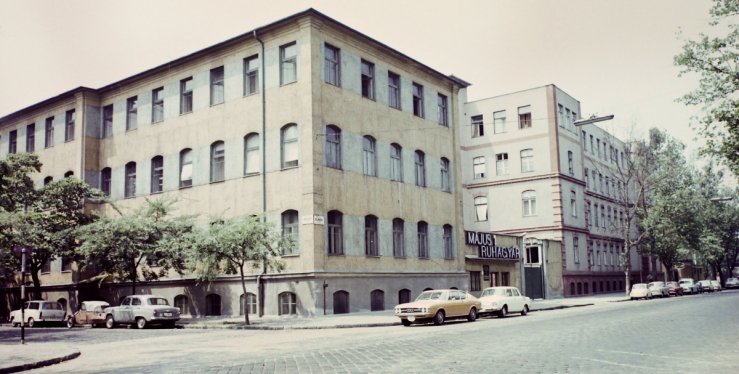
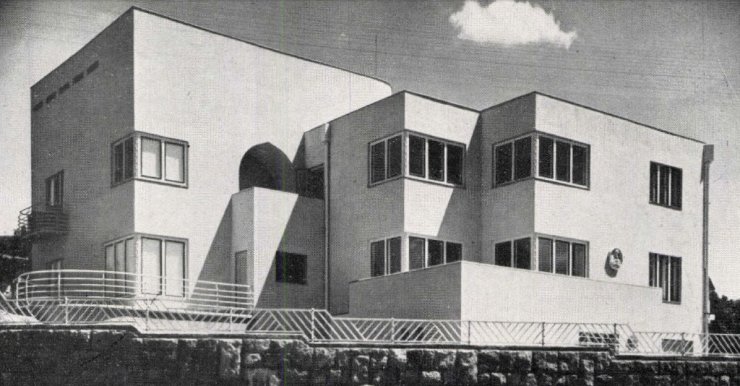
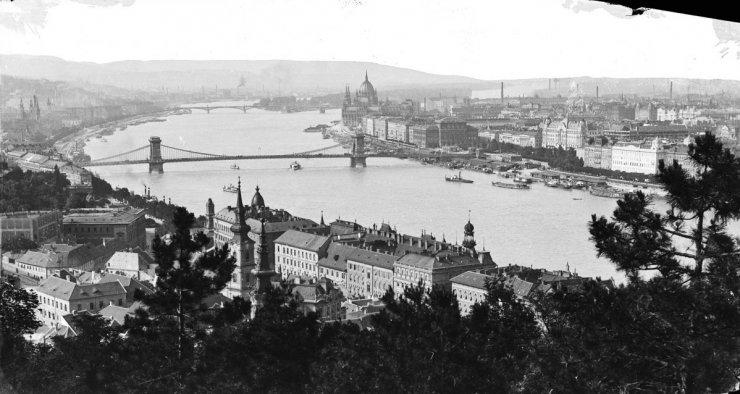
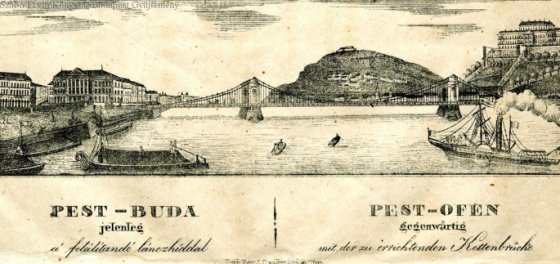
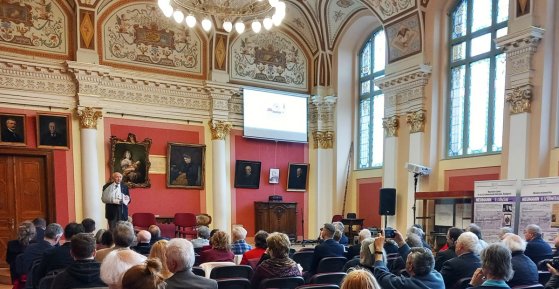
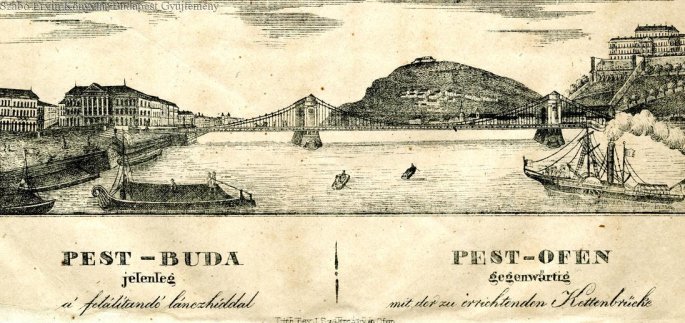
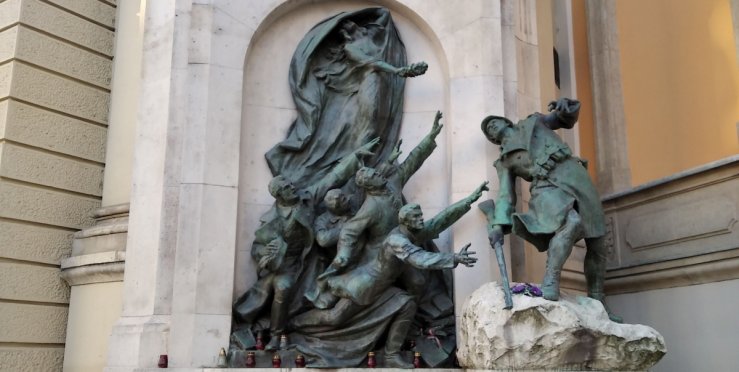
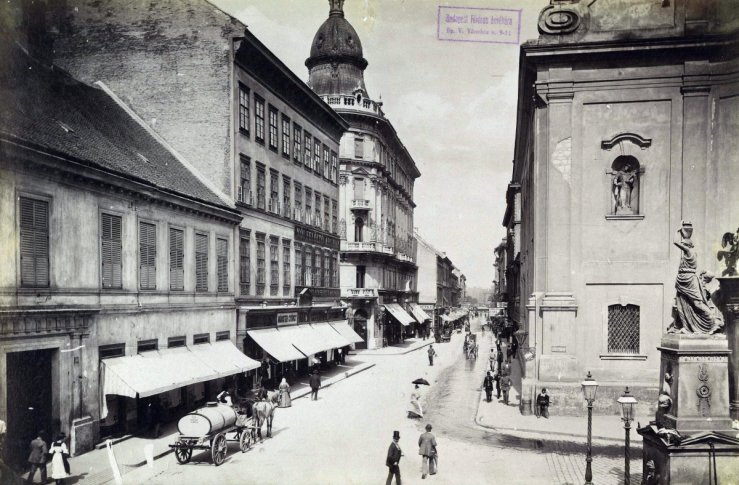
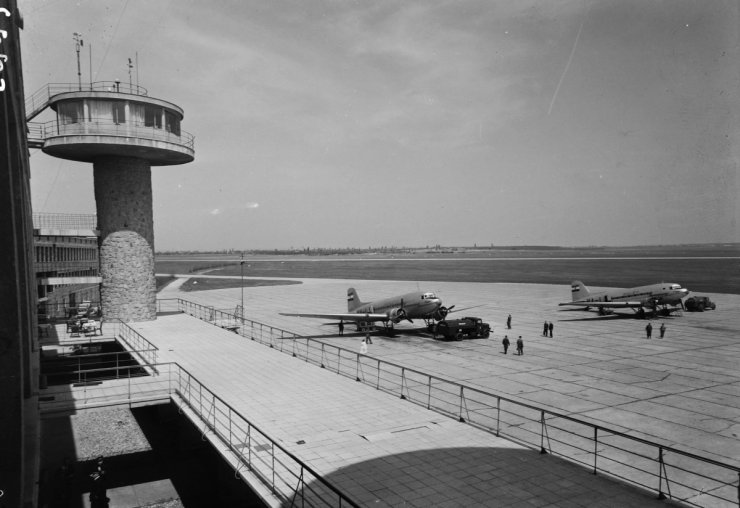
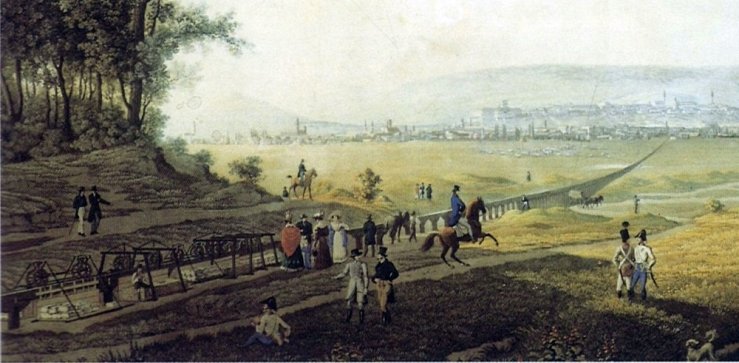
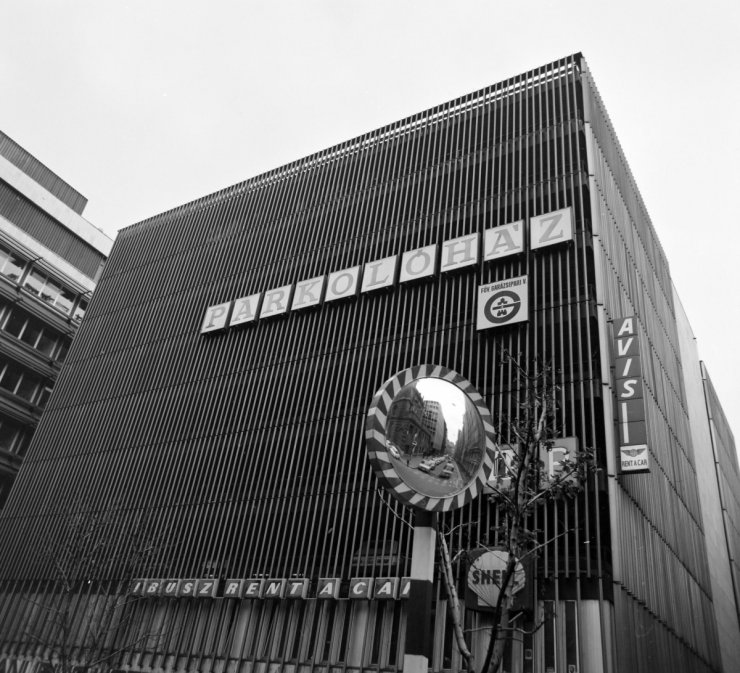
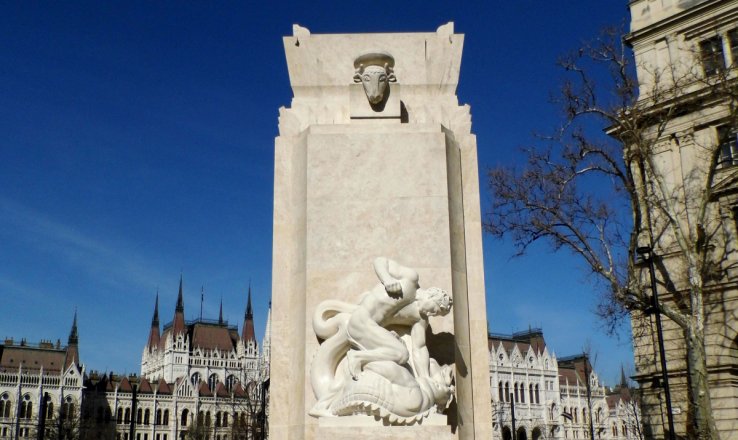
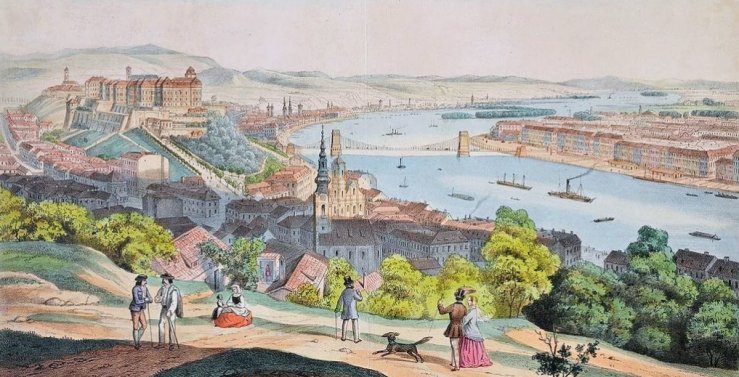
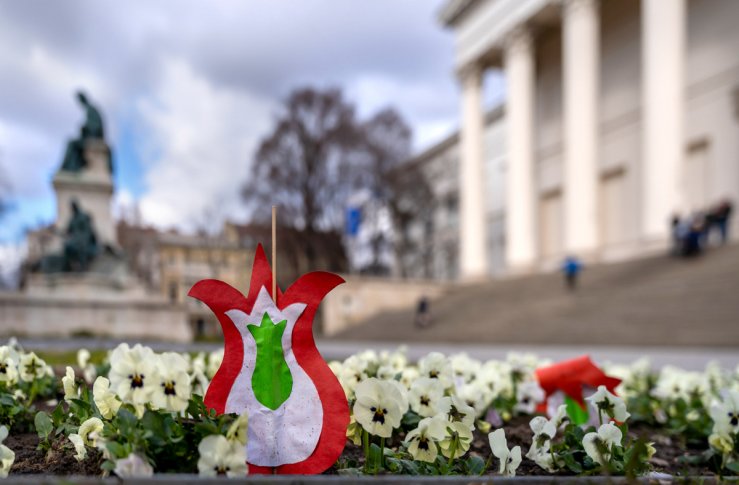
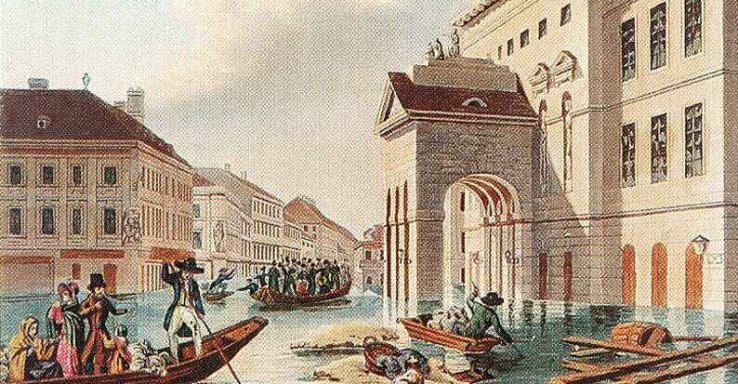
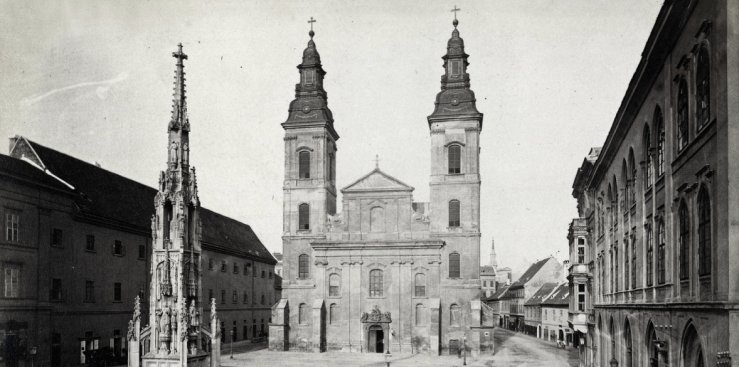
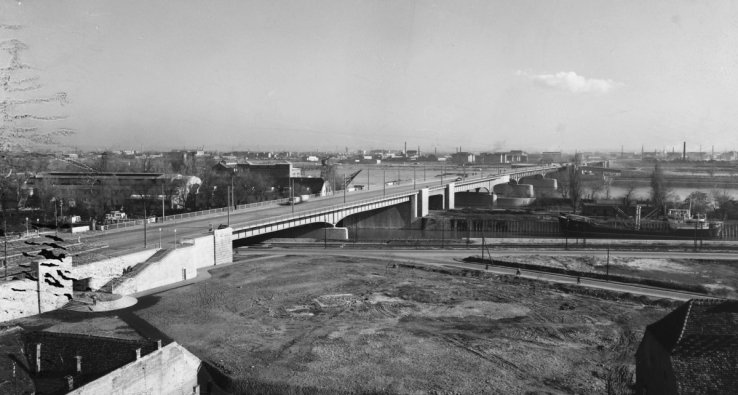
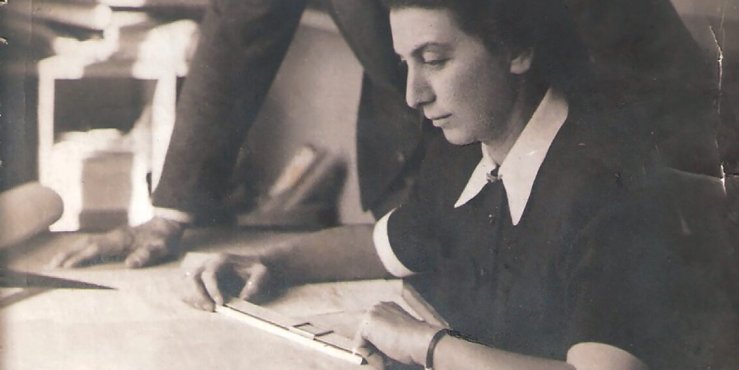
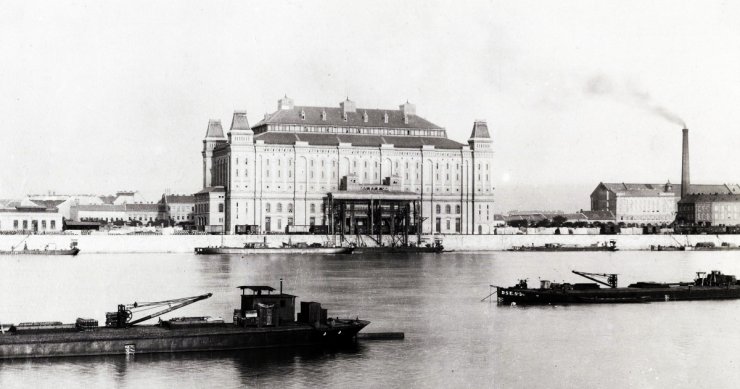
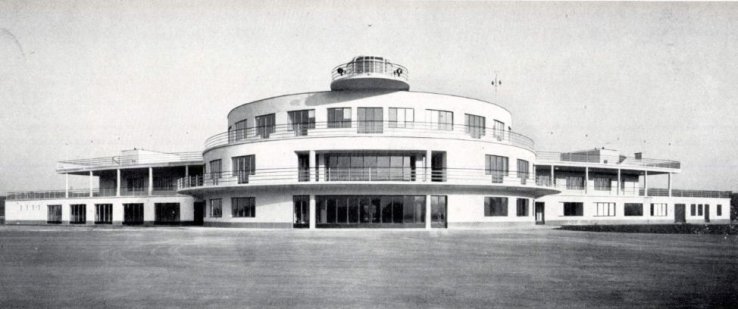
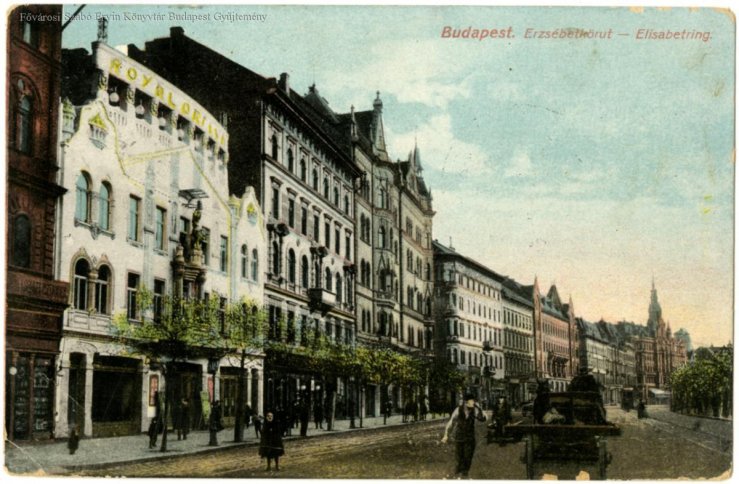
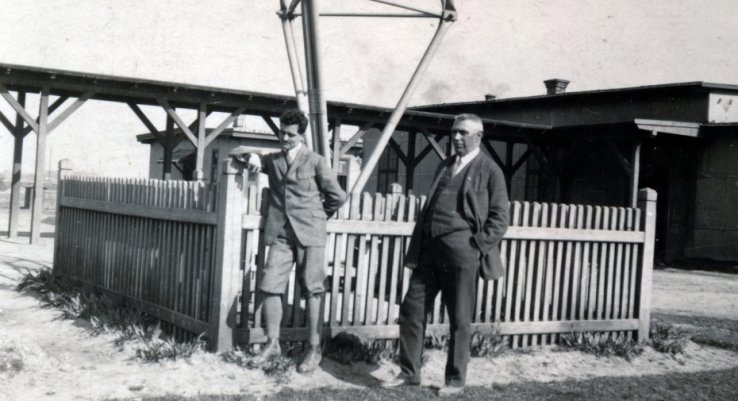
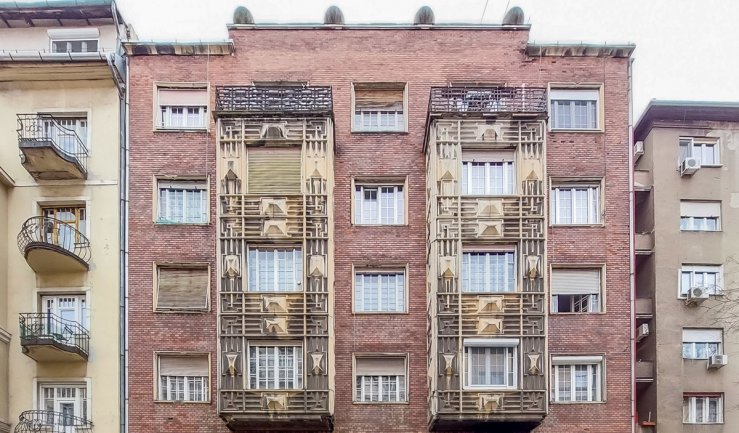
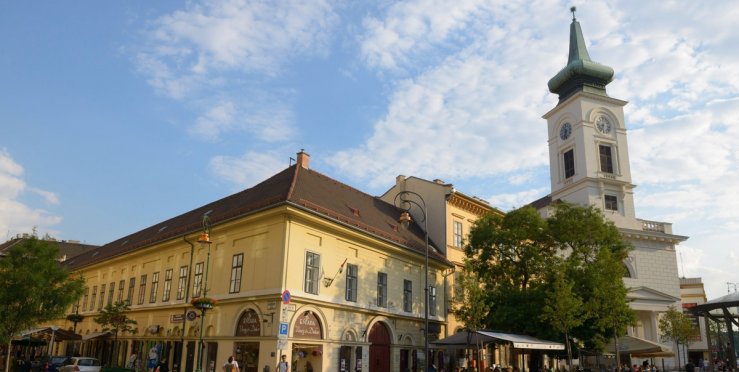
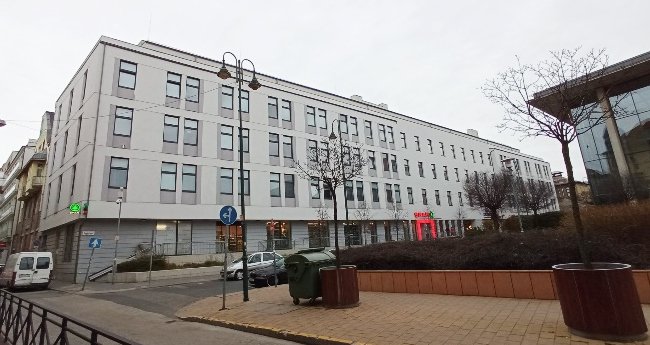
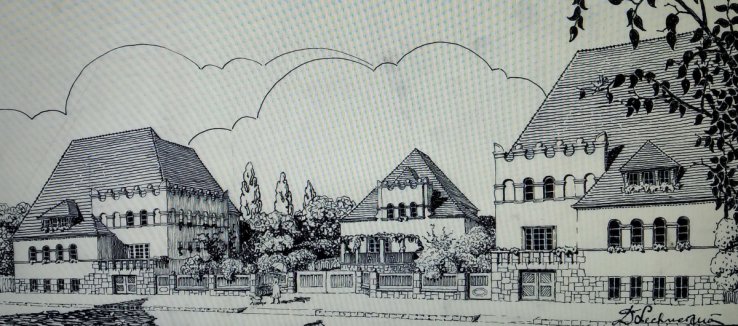
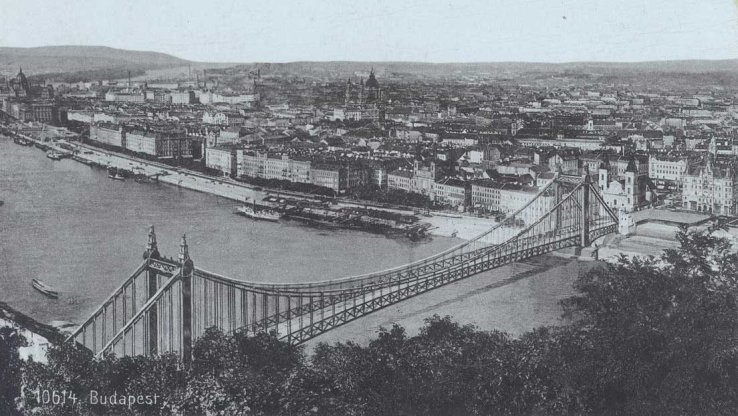
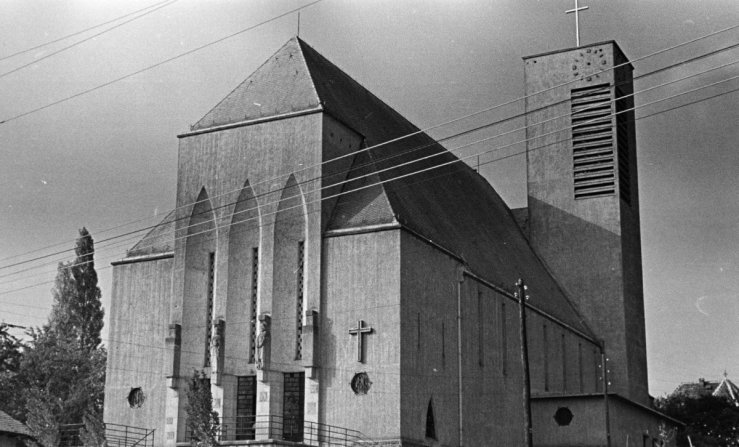
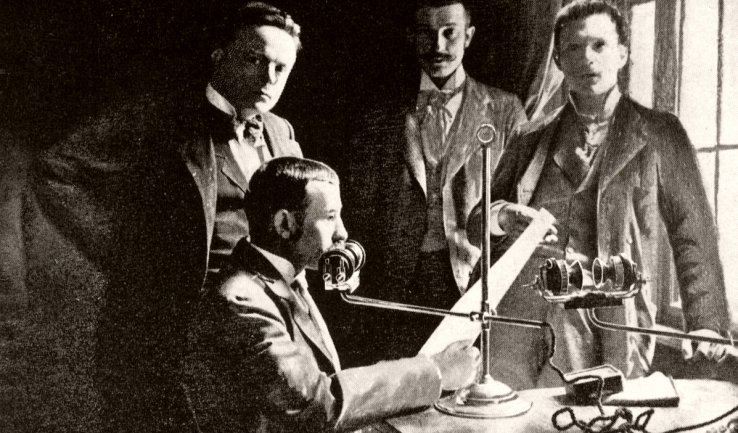

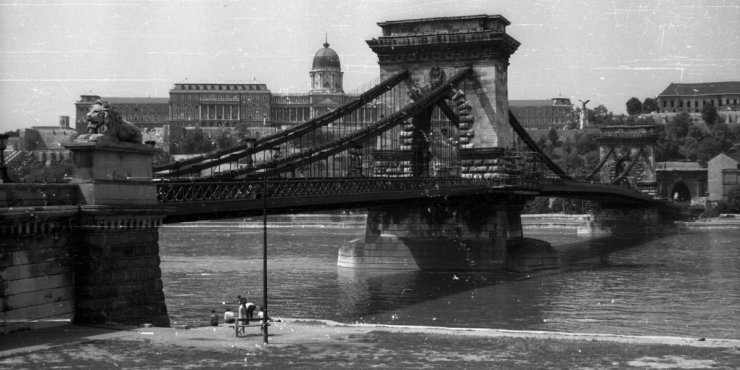
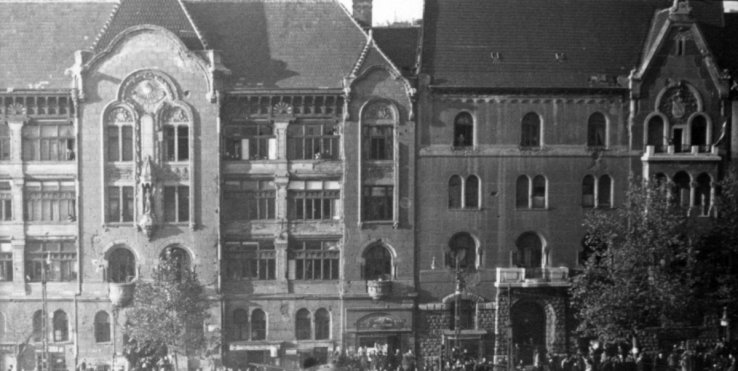
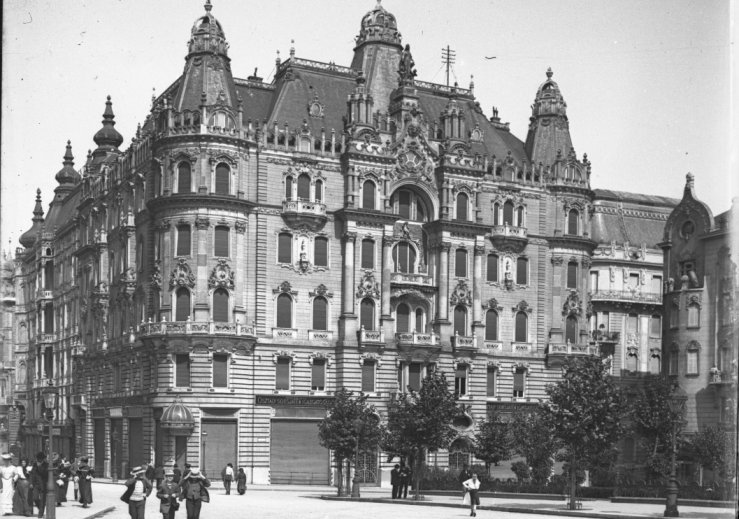
Hozzászólások
Log in or register to comment!
Login Registration